Senatr: Tinder for Lobbyists
· UI Design · UX Design · Code
Collaborated on a Tinder-inspired game to educate high schoolers about lobbying and climate legislation. Created storyboards, mobile UI (Figma), and functional prototype (Framer & JS) used in demos.
Unfortunately, since Framer has updated significantly in the past few months, these demos are no longer fully functional. For reference though, here are the web and mobile versions. Swipe at your own risk!
The game has a fast-paced, decision-based playstyle that borrows directly from dating apps like Tinder. In the fictional universe of the game, all government decisions can be made by simply swiping right for yes, or left for no. Educational introductions to government structure, function, composition of bills, and lobbying influence all take place in an app-like onboarding sequence.
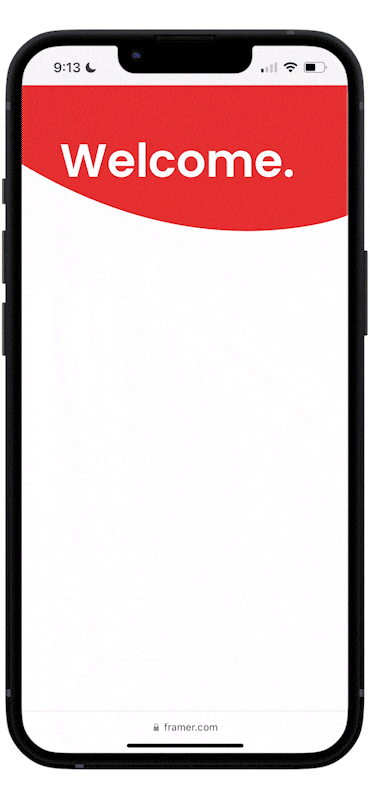
The storyline centers around the American Clean Energy and Security Act, an actual climate bill. You are assigned to the House Committee on Energy, and are responsible for amending the bill before it goes to vote, making you a prime target for industry lobbying surrounding the bill.
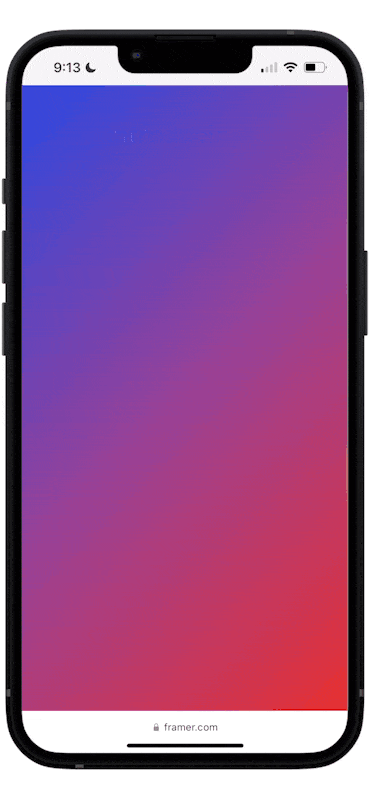
The “app” introduces you to 3 different stats that each of your decisions will affect: Voter Support, Campaign Funds, and Climate Action. Voter support and campaign funds determine your likelihood of re-election, and climate action represents the long term social environmental cost of your decisions. You then “meet” with industry lobbyists, who present stances to agree and disagree with, and at the end of the conversation, a potential amendment to the bill favoring their industries. These amendments are all modeled on real amendments proposed to the bill.
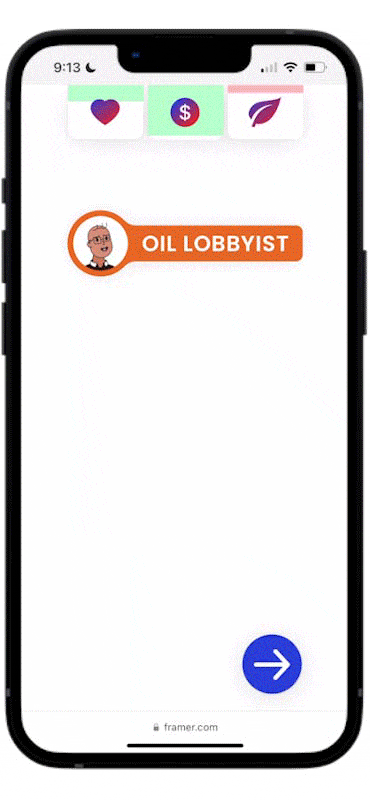
Each swipe has a visual impact on your stats, and each conversation is summarized to enrich the player’s understanding of the consequences of their actions. In the end, there are only 2 outcomes, and both are bittersweet. Based on the players final stats, they can be projected to win your election, but most likely at the cost of severe environmental impacts. If the player makes choices that benefit the environment, it is unlikely that the player fundraised enough to win. The game ends with a real timeline of the bill, and several calls to action.
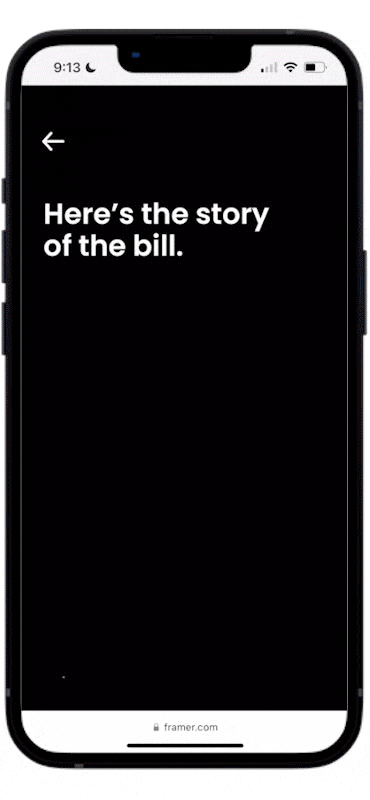
We tested the game with a group of 30 high school students. People described their feelings after playing the game as ‘motivated,’ ‘frustrated,’ and ‘engaged,’ and noted that they were most engaged during the interactive lobbyist meetings and the story of the bill towards the end of the experience.
Here’s some shots from the design phase. We progressed a long way from our initial designs, and it was a ton of fun to work with my team to go from simple pencil wireframes to an app we could actually demo in the classroom!
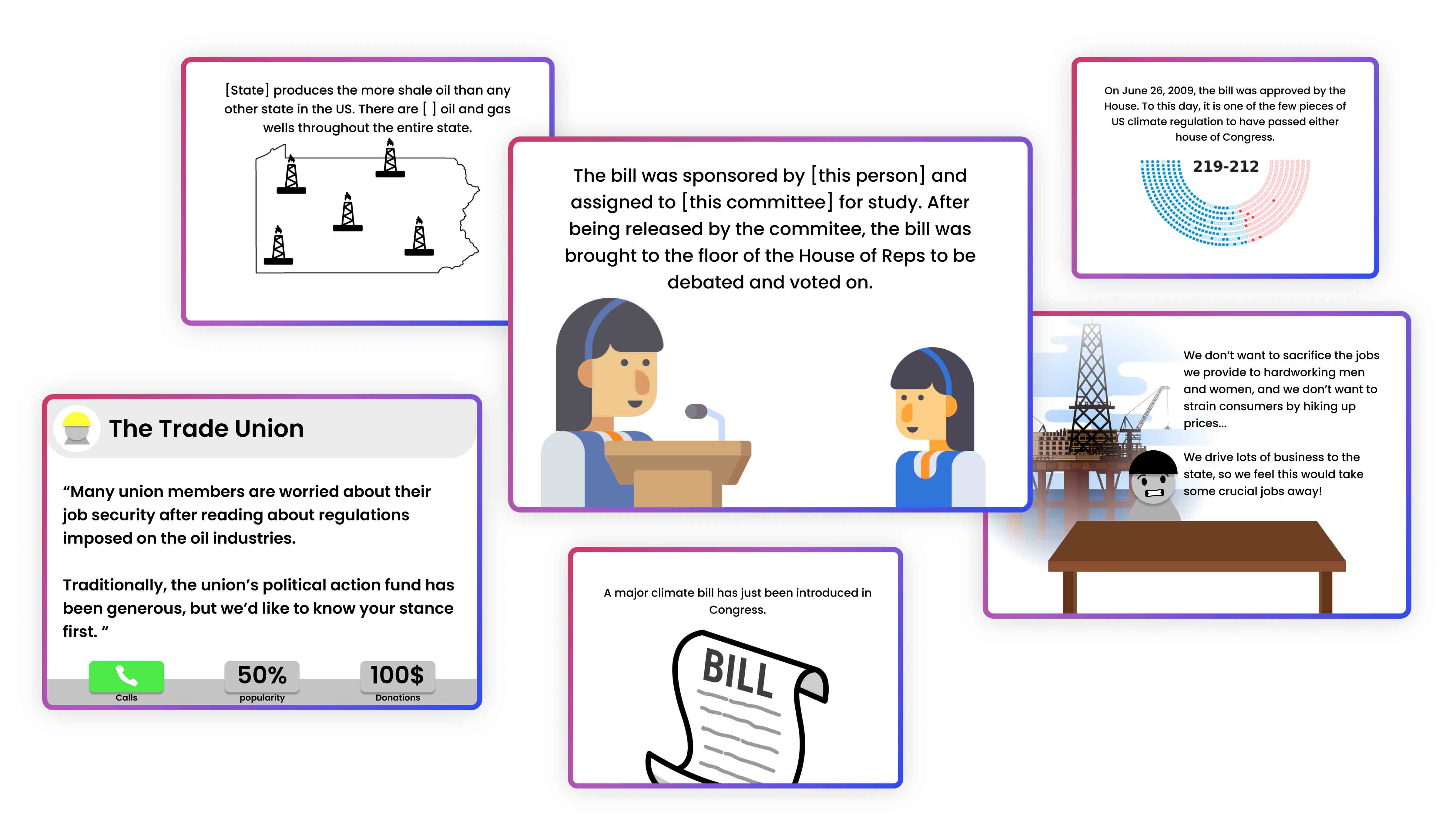
Some initial slide mockups.
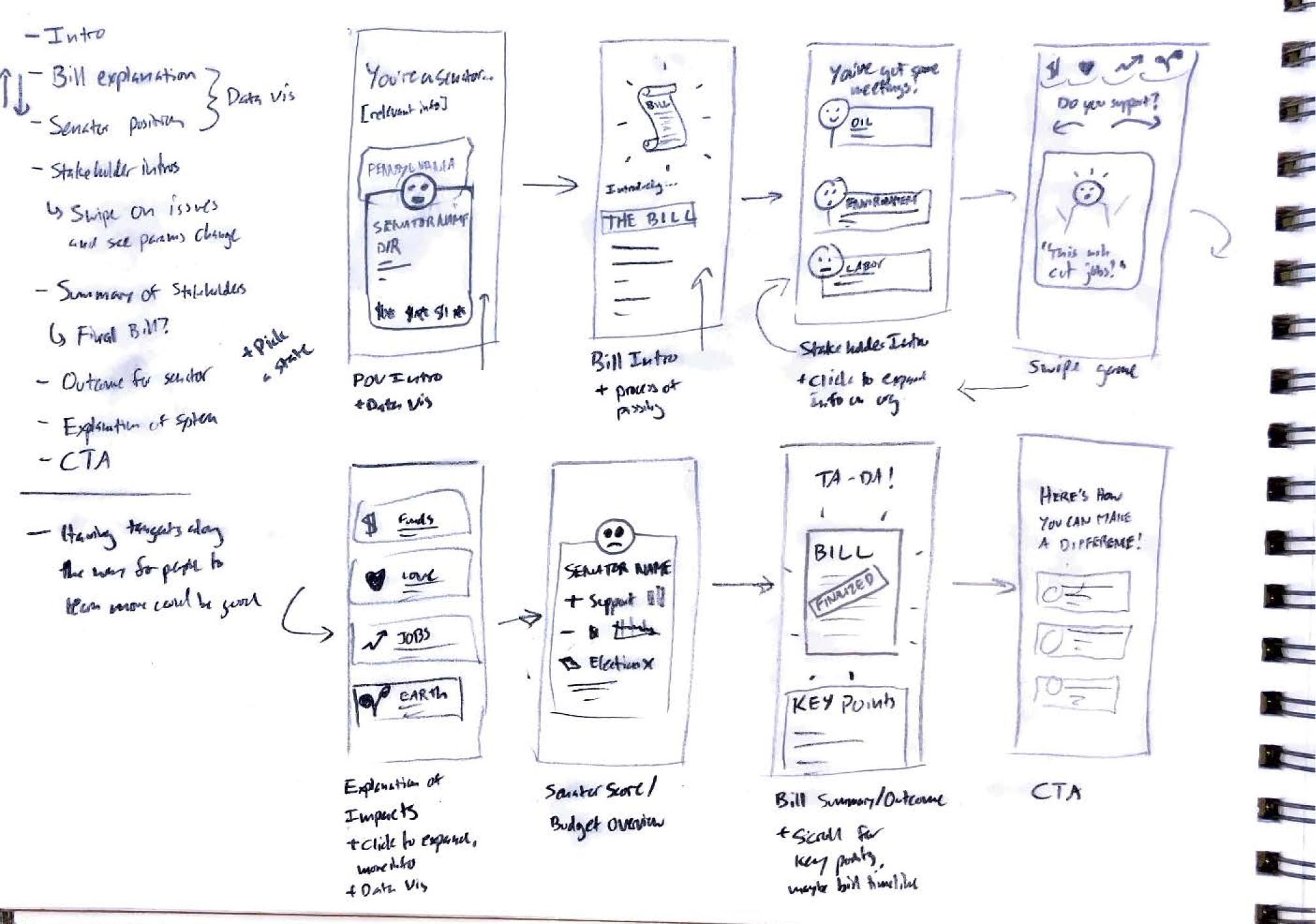
Our first storyboard.
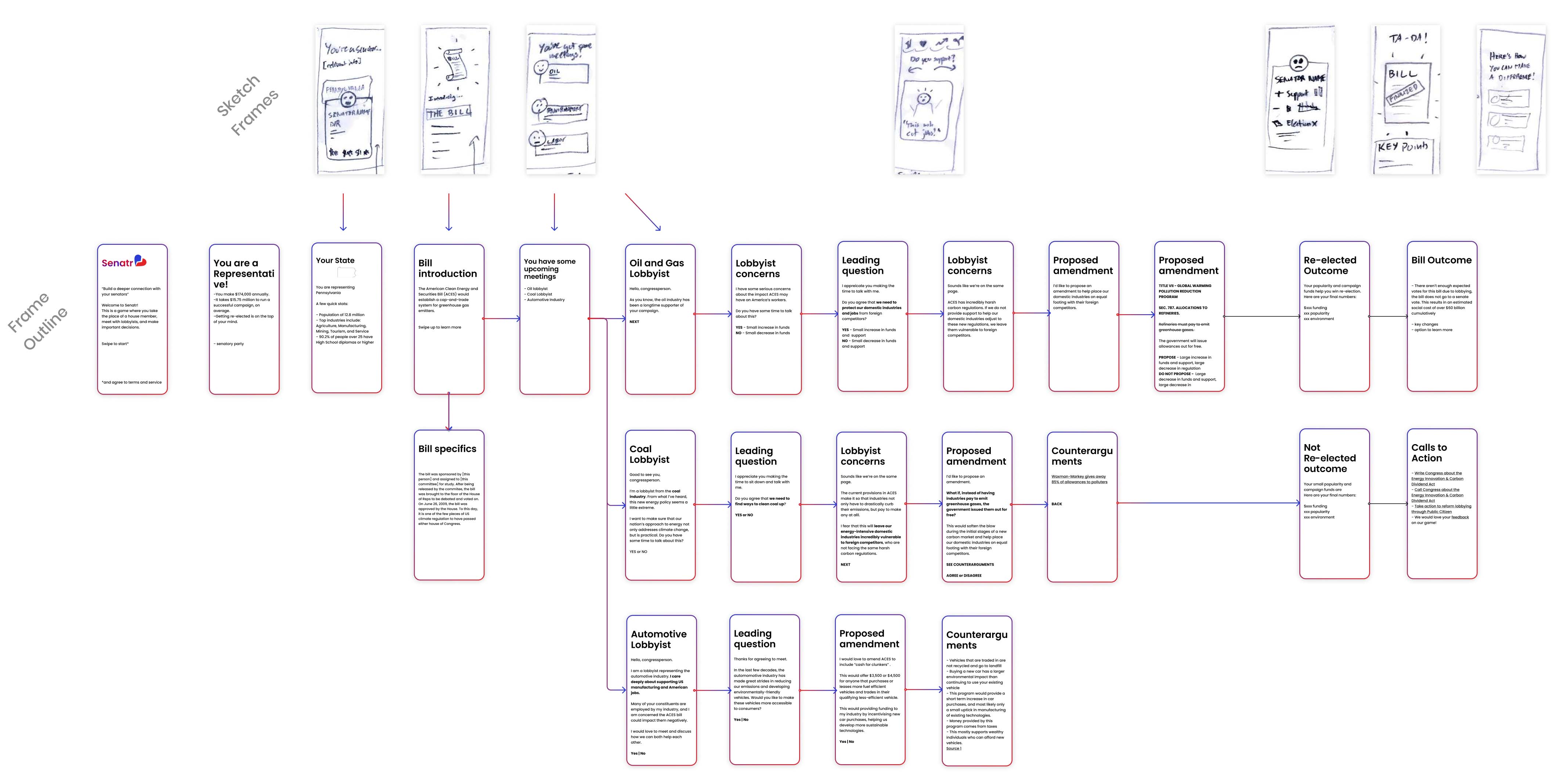
More details, more content, more frames!
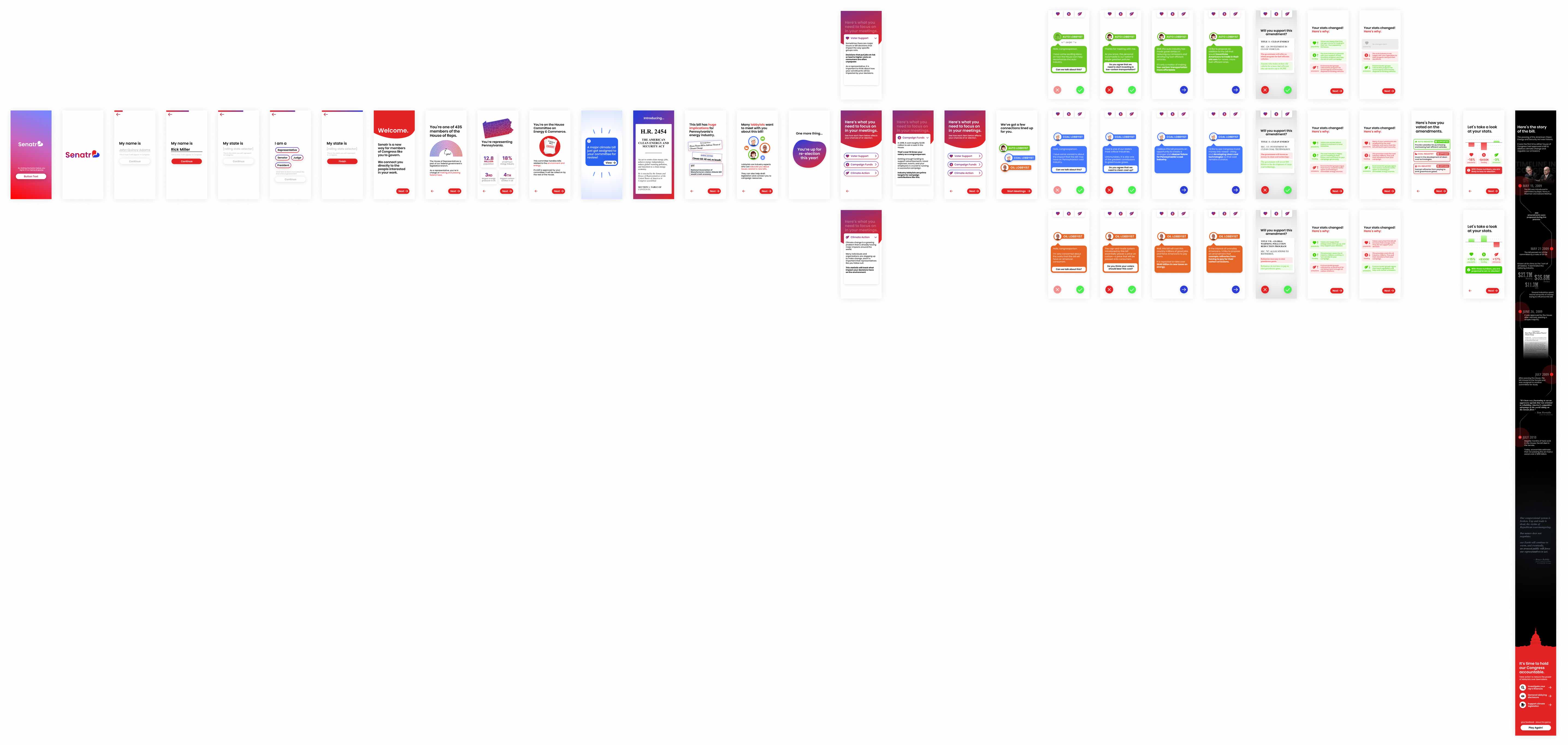
Bird's eye view of the UI flow.